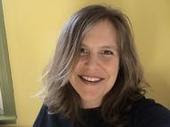was a verse from the song Ordinary Miracle, that struck me in such a way this morning that I had to stop housework to come and blog real quick.
This is how children (and ALL humans) should and need to be treated, like seeds. There are TONS of various seeds in the world that blossom into a grand and vast array of trees, grasses, flowers, vegetables, fruits, etc. All are seeds but each is unique and different and has its own contribution to make to the earth on which we live. Somewhere along the line, humans have tried to force other humans into being the kind of seed that they want them to be, i.e...a rose instead of a dandelion or a red oak instead of a maple or St. Augustine grass instead of crabgrass. No matter how much you'd like for that dandelion to be a rose, it isn't going to happen, but what will happen is the following: the dandelion will wither and shrivel up because instead of giving it what it needed, it was made to feel bad for NOT being the rose you wanted it to be. Either that or it will become a miserable rose longing for the dandelion it was meant to be.
Seeds need nourishment, protection, water, fertilizer, and freedom to grow...just as children need to be nourished, loved, protected and given freedom to grow. IMHO, the world would be a far nicer and happier place if more people were allowed to be who they are inside, instead of being forced into something that they are not.
Now Known As Close to Dead
7 months ago




